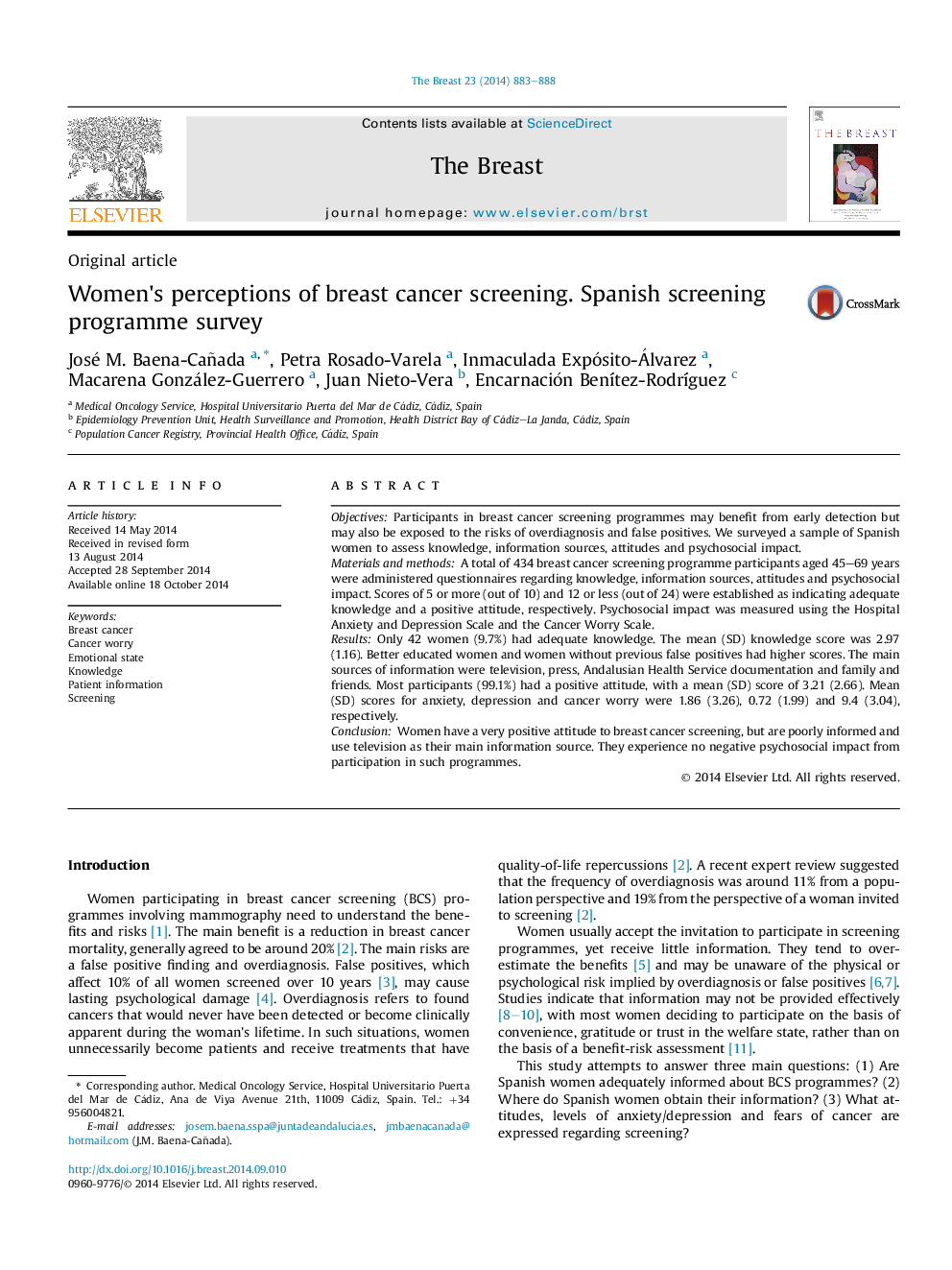| Article ID | Journal | Published Year | Pages | File Type |
|---|---|---|---|---|
| 3908614 | The Breast | 2014 | 6 Pages |
ObjectivesParticipants in breast cancer screening programmes may benefit from early detection but may also be exposed to the risks of overdiagnosis and false positives. We surveyed a sample of Spanish women to assess knowledge, information sources, attitudes and psychosocial impact.Materials and methodsA total of 434 breast cancer screening programme participants aged 45–69 years were administered questionnaires regarding knowledge, information sources, attitudes and psychosocial impact. Scores of 5 or more (out of 10) and 12 or less (out of 24) were established as indicating adequate knowledge and a positive attitude, respectively. Psychosocial impact was measured using the Hospital Anxiety and Depression Scale and the Cancer Worry Scale.ResultsOnly 42 women (9.7%) had adequate knowledge. The mean (SD) knowledge score was 2.97 (1.16). Better educated women and women without previous false positives had higher scores. The main sources of information were television, press, Andalusian Health Service documentation and family and friends. Most participants (99.1%) had a positive attitude, with a mean (SD) score of 3.21 (2.66). Mean (SD) scores for anxiety, depression and cancer worry were 1.86 (3.26), 0.72 (1.99) and 9.4 (3.04), respectively.ConclusionWomen have a very positive attitude to breast cancer screening, but are poorly informed and use television as their main information source. They experience no negative psychosocial impact from participation in such programmes.
